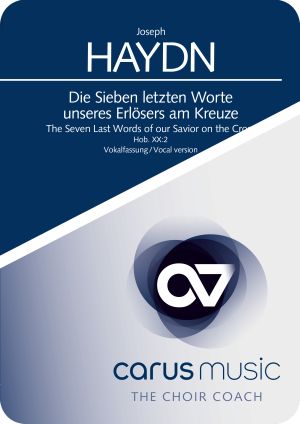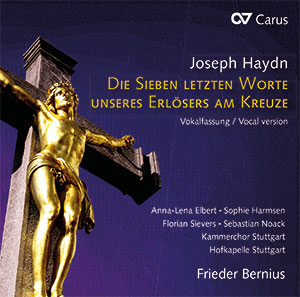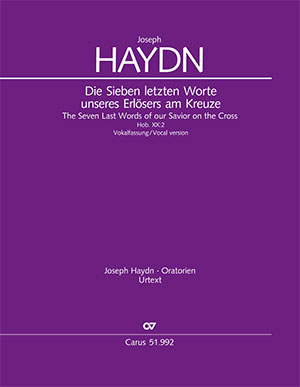
Listeners to this masterpiece are subject to a dramatic and all-encompassing emotional pull that simply cannot be escaped. Originally conceived as a purely instrumental work, Haydn was spurred to rearrange it for voice after hearing a similar reworking with a German text in 1794 in the city of Passau. A well-rehearsed choir is essential to convey the dramaturgical subtleties and maintain the work’s musical tension up to the bitter and explosive end Il Terremoto – Er ist nicht mehr (He is no more).
Simply practice. Anytime. Everywhere.
Whether at home on your tablet or PC or on the road on your smartphone: with carus music, the Choir Coach, you always have your choral works with you to practice! With the carus music choir app, you can listen to your score together with a first-class recording on any device and easily practice your own choir part with a coach. With carus music, your concert preparation is easy, efficient and fun to master!
In this edition, the relevant part is highlighted by the sung voice instead of piano.
Performers: Anna-Lena Elbert (Soprano), Sophie Harmsen (Alto), Florian Sievers (Tenore), Sebastian Noack (Basso) – Kammerchor Stuttgart, Hofkapelle Stuttgart – Frieder Bernius
Contents
-
Composer
Joseph Haydn
| 1732-1809As Kapellmeister to Prince Esterházy, Haydn composed numerous instrumental works and various operas, as well as making important contributions to the genre of church music, including fourteen Latin masses, of which only twelve are authentic or complete; these are complemented by motets and offertories, two important Te Deum settings, two Salve Reginas, a Stabat Mater, and the different versions of the Sieben Worte des Erlösers am Kreuze. The masses were composed continually between 1749 and 1802, except for the years 1783–1795, and therefore constitute the genre with which Haydn was occupied over the longest period of time. The six (authentic or complete) masses composed before 1782 are stylistically very different, and as well as short Missae breves there are more extended masses with rich orchestral scoring; by contrast the six so-called late masses, written from 1796 onwards, form a comparatively homogeneous group of more extensive works scored for large forces. With his two great oratorios Die Schöpfung (The Creation) (1798) and Die Jahreszeiten (The Seasons) (1801) Haydn established the tradition of the German oratorio for middle-class music making. Personal details
-
Songwriter / Librettist
Gottfried van Swieten
| 1733-1803
Frequent questions about this work
 There are no questions and answers available so far or you were unable to find an answer to your specific question about this work? Then click here and send your specific questions to our Customer Services!
There are no questions and answers available so far or you were unable to find an answer to your specific question about this work? Then click here and send your specific questions to our Customer Services!







